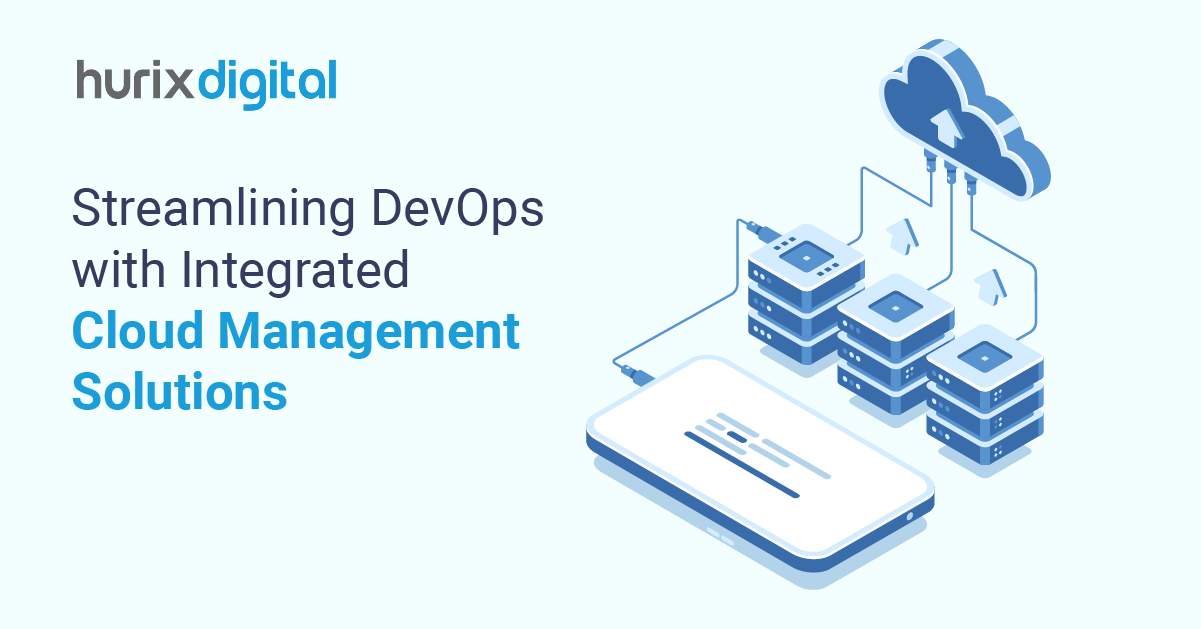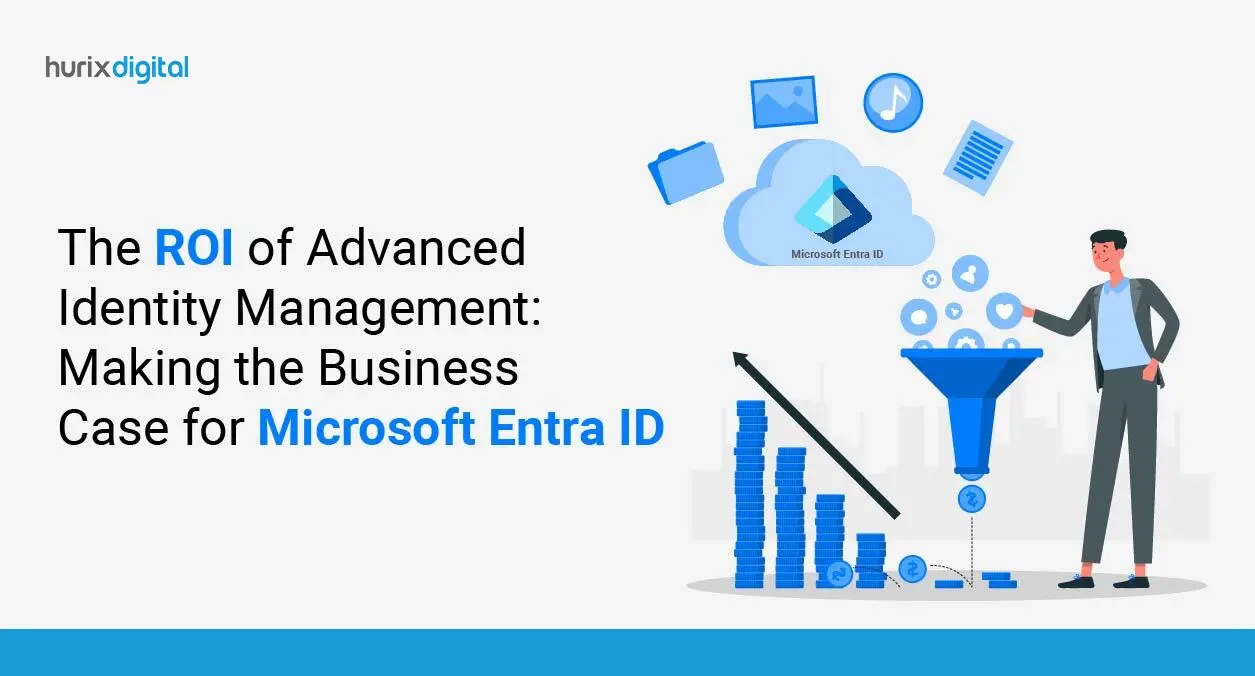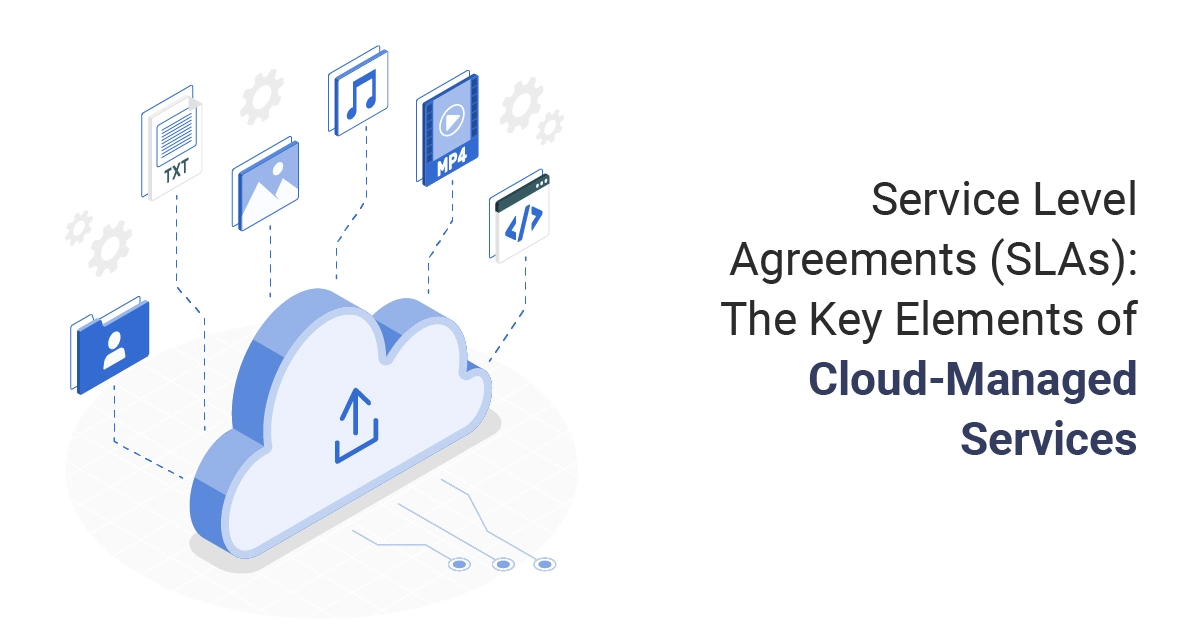
Streamlining DevOps with Integrated Cloud Management Solutions
Summarize with:
DevOps means integrating Software Development and Information Technology (IT) operations, and teams. This bridges the gap between development and operations, helping build products quicker, improving collaboration, and accelerating time to market.
In a nutshell, DevOps reduces the time and effort required to build, test, and deploy software through closer collaboration between development and operation teams.
Cloud-based DevOps means using cloud-based tools and solutions to help automate and streamline DevOps processes. Cloud management solutions can enable you to implement DevOps practices with better agility and convenience.
By 2025, 51% of IT spending is projected to shift to cloud solutions from traditional IT tools. More than half of IT leaders are considering moving sensitive consumer data and corporate financial data to the cloud.
Read on to understand how cloud DevOps works, what are the benefits, types of solutions, and best practices.
Table of Contents:
- How Does Cloud Management for DevOps Work?
- Why Use Integrated Cloud-Based Solutions for DevOps
- Types of Integrated Cloud-Based Solutions for DevOps
- Best Practices for Cloud-Managed DevOps
- Summing Up
How Does Cloud Management for DevOps Work?
Cloud-based DevOps means using tools and solutions hosted on a cloud instead of on-premise. Organizations using DevOps rely on cloud computing services to manage and automate their infrastructure.
This allows for more agile processes and quicker adaptation. For instance, if an organization needs to start building a new software project or scale up an existing project, the cloud can help avoid delays and complications.
Cloud infrastructure enables centralized management through a common platform for deploying, testing, and releasing applications.
Cloud-based tools also offer CI/CD tools to automate DevOps processes. This allows for better collaboration across teams and more flexibility in the face of changing requirements.
Also Read: Top Cloud Infrastructure Providers – Who’s Leading the Pack in 2024?
Why Use Integrated Cloud-Based Solutions for DevOps
Integrated cloud management solutions offer several benefits for DevOps, including:
1. Scalable
With cloud solutions, you can scale resources according to demand. This is easier to adjust based on workload demands. This allows for optimum resource use and is one of the key features of cloud-driven DevOps transformation.
2. Cost-Effective
The cost of setting up server space, along with purchasing software, devices, and hardware, is high. However, with cloud-based services, you save on expensive on-premise infrastructure. This way, you only pay for the resources you use.
3. Easy to Adapt
Tools hosted on the cloud are much easier to adapt. You don’t have to ensure server space and worry about maintaining the hardware and software configurations. It is easy to set up—you purchase the plan and access the cloud management platforms.
4. Time-Saving
Cloud-based DevOps allows teams to configure resources and respond to feedback quickly. It speeds up development cycles and allows for quicker time-to-market.
5. Centralization
DevOps covers a range of processes—coding, building, testing, deploying, and monitoring. With cloud solutions for DevOps, these functions are available in a centralized format that can be easily accessed by any of the teams at any point in time.
6. Easier Collaboration
Cloud management for DevOps enables better collaboration at each step. It avoids the hassle of sending files back and forth.
Multiple individuals can develop software simultaneously. Further, developers, operators, and testers can all access the same tools and resources and collaborate in real time. Since it allows them to work remotely, people can access it from wherever they are.
7. Smoother Automation
Effective automation requires tools that help report bugs, document requirements, speed up communication between teams, and keep up with technological innovation and changing user expectations. Such automated processes are easier to carry out through the cloud.
With DevOps cloud integration, you save on setting up servers and installing software and can also run automated tests easily. By automating repetitive tasks, you can focus on those that require judgment and innovation and avoid doing tedious, repetitive tasks.
8. Encourages Innovation
Since cloud-based solutions are more flexible and scalable, they enable the team to try out new technologies with ease and encourage innovation and improvement.
9. Disaster Management
Cloud-based solutions allow you to easily handle disaster recovery through backed-up data and applications that can be promptly restored. This allows smooth continuance of business.
Types of Integrated Cloud-Based Solutions for DevOps
Here are some of the main types of cloud management solutions for DevOps:
1. Infrastructure as a Service
Infrastructure as a Service (IaaS) refers to IT infrastructure for various functions like computing, storage, and networking on a virtual, pay-as-you-go basis. It allows you to scale resources based on changing requirements and workloads. This saves you from high initial capital expenditure and the hassles of maintaining on-premises infrastructure.
2. Platform as a Service
Platform as a Service (PaaS) enables you to develop apps on a platform that provides both hardware and software tools. With the help of PaaS, you can build, deploy, run, manage, and update cloud-based applications. This saves the cost of building and maintaining an on-premise platform.
3. Software as a Service
Software as a Service (SaaS) delivers apps on a subscription basis. Users can use apps on the internet, usually through a web browser. The customer pays a fee, and they don’t have to worry about managing and maintaining software and infrastructure. This way, the organization doesn’t have to get involved with infrastructure and maintenance.
4. CI/CD Tools
Continuous Integration/Continuous Delivery tools streamline processes like integrating code changes, testing, and deploying applications.
CI automatically and frequently integrates code changes into a source code repository. On the other hand, CD refers to the integration, testing, and delivery of code changes as well as continuous deployment wherein it automatically releases updates.
Cloud-based CI/CD tools help create a stable environment for DevOps and Cloud Management through continuous delivery pipelines.
5. Infrastructure as Code Tools
Infrastructure as Code Tools (IaC) tools describe infrastructure configurations as code-like software. It enables organizations to automate tasks without manually conducting them and allows you to deploy infrastructure much quicker.
Best Practices for Cloud-Managed DevOps
Here are some best practices to follow when implementing integrated cloud management solutions DevOps.
1. Maintaining the CI/CD Pipeline: This is the crux of DevOps and involves updating code changes regularly and deploying code in production.
2. Automated Testing: Testing your application’s performance periodically will help you spot glitches and improve it.
3. Communication and Collaboration: There needs to be continuous communication between different teams and a platform to share feedback.
4. Using Containers: Containers enable you to categorize applications so that you can focus on certain areas without affecting others. This helps with easy deployment and updating.
Summing Up
Cloud management solutions for DevOps have transformed the way organizations develop, test, and deploy software. By using cloud-based tools, DevOps teams can improve flexibility, collaboration, and delivery.
Hurix Digital provides a range of cloud services to suit your diverse needs. So, whether you’re migrating to the cloud or improving existing infrastructure, our cloud solutions will help you manage and streamline your DevOps.
Connect with us today to get started!
Summarize with:

Vice President and Strategic Business Unit Head – Cloud Services
A top technology management voice on LinkedIn with 20 Years of experience in Information Technology, Cloud Services, Digital Transformation, Application Modernization, Managed Services, IT Security Engineering and Operations Management. An avid technology Leader, Leadership Speaker, Author & Coach.
 A Space for Thoughtful
A Space for Thoughtful 



